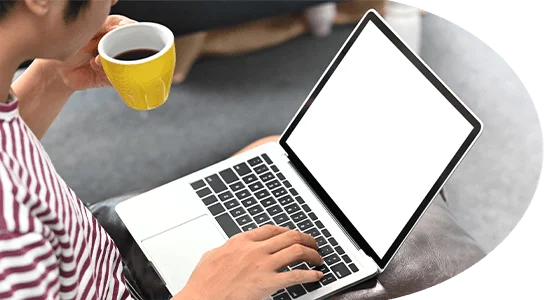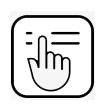
Two important components of healing is identifying triggers of compulsive behavior and understanding where impulsivity comes from. Therapy can help you develop these skills and address symptoms of Impulse Control Disorders, which may include:
Difficulty controlling emotions
Feelings of restlessness
Difficulty managing urges
Compulsive lying
Poor social skills
Act of violence
Kleptomania
Pyromania
Pathological Gambling

Pyromania Impulse Control Disorder
People with Pyromania (impulse control) intentionally start fires without thinking about the destruction or injury their actions may cause. To receive a pyromania diagnosis, the DSM-5 criteria state:

Kleptomania Impulse Control Disorder
Kleptomania is the constant and compelling urge to steal. People with Impulse Control Disorder frequently steal items with little personal or monetary value.

Intermittent Explosive Disorder (IED)
IED is when a person acts on aggressive impulses and commits seriously aggressive acts, such as assault or destruction of property as a result of an incontrollable surge of rage. Symptoms of IED include:

Trichotillomania Impulse Control Disorder
Trichotillomania, also known as “hair-pulling disorder,” is a kind of impulse control disorder. People who have trichotillomania feel an overwhelming necessity to pull out their hair. Symptoms of trichotillomania include

Conduct Disorder (CD)
Conduct disorder involves behavior patterns that include aggression toward people and animals, destroying property, theft, or other deceitful actions and serious rule violations. Signs and symptoms of CD include:

Oppositional defiant disorder (ODD)
Oppositional defiant disorder is an impulse control disorder in which a child or adult displays a pattern of an angry or irritable mood, rebellious or aggressive behavior, and vindictiveness toward people in authority. Symptoms of ODD include:
Talking to someone you trust about your struggles with impulse control is essential. Our impulse disorders therapists can help you understand your behaviors while helping you manage the symptoms.


855-722-4422

Everybody in the world is seeking happiness—and there is one sure way to find it. That is by controlling your thoughts. Happiness doesn't depend on outward conditions. It depends on inner conditions.

Dale Carnegie
Our Impulse Control therapists can help you to overcome fixation with effective strategies & techniques to develop better self-control.

Find Your Therapists

Check Your Insurance

Schedule Your Session

Our impulse control therapists can help you address overarching mental health disorders that may be causing impulsivity in the first place & assist you in developing better decision-making & emotional regulation.
Online therapy offers developments that align with in-person treatment. Our trained professionals provide a complete evaluation & a comprehensive treatment program that strengthens your control over impulsivity.
Find Your Therapists Nearby
Our Therapists | Insurance | Services Offered | Privacy
Here are five examples of impulse control disorders:
Several therapy techniques can be helpful in treating impulse control disorders. These include:
Here are some key signs of Impulse Control Disorders:
Managing impulsivity, especially teenage impulsivity, can be achieved through various coping skills, such as;
It's important to work with a mental health professional to identify individual coping strategies that will be effective. At Lifebulb we ensure that you’re in a safe space and help you manage your impulsitvity. We also provide services provided by impulse control therapist child specilaists.
Impulse control disorders can be triggered by a variety of factors, such as biological factors such as brain chemistry and genetics, environmental factors such as trauma and abuse, substance abuse, mental health conditions such as ADHD, OCD, and bipolar disorder, and personality traits such as high levels of impulsivity or sensation-seeking. Not everyone with these risk factors will develop the disorder, and other factors may also contribute to its development. We at Lifebulb go that extra mile to help you out with impulse control and our impulse control therapist will be there for you throughout your impulsive behavior disorder treatment, especially for treating impulsive behavior in teens.
There are different types of therapy that can be effective for children with impulse control issues, such as cognitive-behavioral therapy (CBT), play therapy, parent-child interaction therapy (PCIT), mindfulness-based interventions, and family therapy.
It's crucial to collaborate with a mental health professional to identify the most suitable type of therapy for a child's individual needs and circumstances. We use time management and effective techniques to help manage impulsivity in teens and ensure their well-being.
If you are experiencing an emergency right now, please call 911 right away. While Lifebulb is not a crisis center and Lifebulb therapists and counselors are not emergency services, we understand that urgent matters can and will pop up from time to time. You will have direct email and phone access to your therapist, who will make their best effort to be available to you when you reach out. Depending on your specific impulse control treatment plan, your therapist may provide you with resources to use or contact when situations occur beyond the scope of your online impulse disorders therapy or offline impulse control disorder treatment work together.
Our online impulsive disorder therapy sessions are all conducted by our therapists in private spaces, and our video platform is contained within our HIPAA-compliant Electronic Health Records system, so your face, voice, and data are always private and protected.
It is important that our clients work with the best possible fit as a therapist for their specific impulsive behavior treatment. This is why we provide detailed bios of our therapists for our clients to review before reaching out to us. If you have a specific impulse control therapist in mind to work with, we would be happy to schedule you to see them for your. We also understand that our clients don't always match perfectly with their therapist, and in the case of a less-than-great fit, we will help you to find the right match among our team and, if necessary, provide the best referral we can to someone more suited to help you beyond our walls.
We do employ licensed clinical psychologists, as psychologists can offer services, such as best online impulse control treatment, anxiety therapy services and psychological testing, that many other license types are unable to offer. Many times, your counselor or therapist can work in tandem with a psychologist to provide impulse disorders therapy, impulse control disorder treatment plans and psychological testing when necessary to better provide for your specific needs or goals. In this way, we are able to better provide for a wider range of your needs.
Look through our list of carefully curated resources to learn about impulse control disorder treatment.